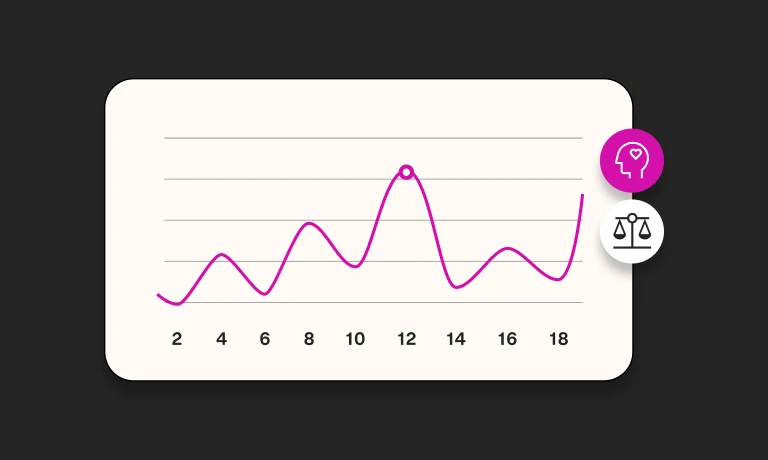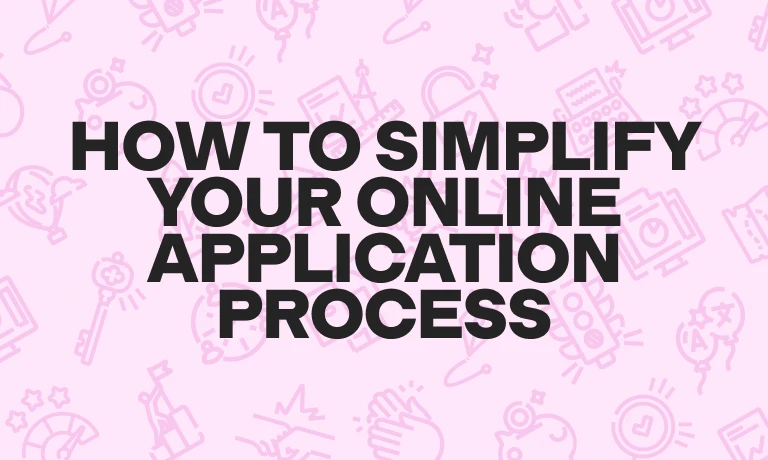Hiring the wrong estate agency sales negotiator isn’t a mistake your business can afford to make. In this role, there's no room for trial and error; a poor-quality hire means lost revenue from the start that continues until you find a suitable replacement, which is often a time-consuming process.
A well-written job description is crucial for avoiding these challenges and attracting the right candidates. However, differentiating the specific skills and experience needed for an estate agency sales negotiator versus other roles in real estate can be tricky, which can lead to many unqualified individuals applying.
TestGorilla is here to lend a hand. In this article, we’ll show you how to write a job description that draws in the best estate agency sales negotiators for your company.
Table of contents
- What is an estate agency sales negotiator?
- Key skills to look for in estate agency sales negotiators
- How to write an effective estate agency sales negotiator job description
- Estate agency sales negotiator job description template
- 2 things to avoid when writing a job description for estate agency sales negotiators
- Next steps: Attracting and assessing estate agency sales negotiator candidates
- FAQs
- Hiring the best estate agency sales negotiators with TestGorilla
What is an estate agency sales negotiator?
An estate agency sales negotiator plays a pivotal role in real estate, acting as the primary liaison between buyers and sellers.
They’re responsible for:
Coordinating property viewings and appraisals
Negotiating sales and lettings terms
Managing client relationships and expectations
Working with licensed real estate agents to ensure smooth transaction processes
Key skills to look for in estate agency sales negotiators
The best estate agency sales negotiators will possess the following hard and soft skills:
Hard skills
Property and location knowledge: In-depth understanding of property features and local area insights, vital for advising clients and assessing property potential.
Data analysis: Ability to analyze local property market trends to advise clients accurately and price properties competitively.
Property valuation skills: Essential for setting realistic prices and ensuring properties are both attractive to buyers and profitable for sellers.
Legal compliance awareness: Understanding real estate laws and regulations to ensure all transactions are compliant and smooth.
Technological proficiency: Experienced in using customer relationship management (CRM) systems such as HubSpot and Salesforce, property listing platforms, and other industry-specific software for effective management and marketing.
Sales and marketing techniques: Skilled in creating compelling property listings and employing effective sales strategies to attract potential buyers.
Soft skills
Effective communication: Key for articulating contract details, negotiating terms, and maintaining clear dialogue between all parties.
Client relationship management: Building trust and rapport with clients, which is crucial for repeat business and referrals.
Problem-solving abilities: Quickly addressing and resolving issues that arise during property transactions.
Resilience and adaptability: Ability to stay motivated and adapt in a constantly changing market, often dealing with high-stress situations.
Negotiation and persuasion: Skilled in negotiating deals that satisfy both buyer and seller, often requiring a balance of tact and assertiveness.
Attention to detail: Ensuring all aspects of the sale process are accurately managed, from contract specifics to compliance with legal requirements.
The best insights on HR and recruitment, delivered to your inbox.
Biweekly updates. No spam. Unsubscribe any time.
How to write an effective estate agency sales negotiator job description
Follow these best practices to write a solid estate agency sales negotiator job description.
Highlight the relevant market segment or asset class
Being an estate agency sales negotiator requires intimate knowledge of the local property market. Specify the need for candidates to have existing knowledge or experience in your specific market area.
For example, if your agency specializes in urban residential properties, highlight this as a requirement. Not doing this increases the risk of attracting candidates who have experience in real estate but not in your specific market segment. This could result in a longer ramp-up time and lost deals.
Specify unique negotiation and sales skills
Estate agency sales negotiators need a particular set of negotiation skills tailored to real estate transactions. Clearly outline expectations for negotiation tactics, such as experience in bidding wars or handling first-time buyers.
Failure to specify these can result in hiring someone with general sales skills but lacking the finesse for real estate negotiations.
Include technological proficiency specific to real estate
Mention the need for familiarity with real estate-specific software and tools, especially those your agency already uses. This could range from property listing databases to CRM systems tailored for real estate.
Neglecting this might result in hiring someone who requires significant training, delaying their full contribution to your team.
Specify the commission structure
Detailing the commission structure in the job description is crucial for an estate agency sales negotiator role. Clearly outline how commissions are calculated and any performance-based bonuses. You might, for example, include information on tiered commission rates based on sales targets or property values.
Not clearly stating this information can lead to misunderstandings or misaligned expectations, potentially deterring top talent who prefer transparency about their earning potential.
Estate agency sales negotiator job description template
Below is a free job description template you can tailor and use for your estate agency sales negotiator position.
Company introduction
Give a concise overview of your estate agency, including its name, areas of real estate specialization, and the types of properties you handle. Additionally, emphasize any notable achievements or recognitions, such as top sales awards or high client satisfaction ratings, and what sets your agency apart in the real estate sector.
Benefits of working with [Your company]
Outline the benefits your estate agency offers its employees. Include financial incentives, such as competitive commissions and bonuses, and non-monetary advantages, such as flexible work hours, opportunities for career advancement, and regular training sessions.
Estate agency sales negotiator job brief
[Company Name]
Job Title: [Estate Agency Sales Negotiator]
Reports to: [E.g. Sales Manager or Branch Manager ]
Position type: [For instance, full-time or part-time]
Location: [Remote, hybrid, on-site, address, etc.]
Salary and benefits: [Salary, commissions, and benefits details]
Responsibilities and duties
Conduct property appraisals and advise clients on market conditions and pricing.
Arrange and manage property viewings, effectively showcasing properties to potential buyers.
Negotiate sale and rental terms, striving for the best possible outcome for both parties.
Develop and nurture long-term relationships with clients, encouraging repeat business and referrals.
Handle administrative tasks, including liaising with real estate agents on transaction processing and property managers on renovations and staging.
Regularly update CRM systems with client interactions, property details, and transaction progress.
Skills and qualifications
Required skills and experience
Proven experience as an estate agency sales negotiator or in a similar role within the real estate sector.
Strong understanding of local property markets and real estate trends.
Proficiency in real estate CRM software, such as Zillow Premier Agent or Salesforce Real Estate CRM.
Excellent negotiation and communication skills.
A track record of meeting or exceeding sales targets.
Knowledge of real estate laws and regulations.
Preferred skills and experience
Bachelor's degree in Real Estate, Business, Marketing, or a related field.
Additional certifications or qualifications in real estate, such as a Certified Residential Specialist (CRS) or Accredited Buyer's Representative (ABR).
Experience in high-value property negotiations or luxury real estate markets.
Advanced skills in digital marketing and social media for property promotion.
Multilingual abilities to cater to a diverse client base.
2 things to avoid when writing a job description for estate agency sales negotiators
When crafting an estate agency sales negotiator job description, avoiding certain pitfalls is crucial in attracting the right candidate.
1. Not specifying work timings and flexibility needs
Failing to clarify the work schedule and the need for flexibility can attract candidates unprepared for the role's demands.
Estate agency sales negotiators often work beyond standard office hours, including weekends and evenings, to accommodate clients. Clearly state these expectations to ensure candidates are aware of and ready for the commitment required, reducing early turnover and job dissatisfaction.
2. Ignoring alignment with customer demographics
As Quenby Solberg, a Program Services Manager at Harvard Business School and a former Realtor with South Shore Sotheby's International Realty, says, “Buying or selling a home is never just a financial decision – it’s an emotional one, too.” Overlooking the specific demographics, languages, and cultural nuances of your client base in the job description can result in a workforce ill-equipped to connect with and effectively serve your clients.
For instance, if your client base is predominantly Spanish-speaking or values certain cultural sensitivities, it’s crucial to seek candidates who can navigate these aspects adeptly.
In your job description, include language proficiency and cultural awareness as desirable skills to attract negotiators who can engage effectively with your diverse client portfolio.
Next steps: Attracting and assessing estate agency sales negotiator candidates
Crafting a precise job description is pivotal in attracting suitable candidates for your open role. However, even with a detailed job description, you may encounter many applicants who only partially meet your criteria.
The best way to weed out unqualified applicants is by using a pre-employment testing platform like TestGorilla. We recommend using these tests to evaluate your estate agency sales negotiator candidates:
Role-specific skills tests
Our Working with Data test assesses your candidates’ ability to perform basic data analysis and interpret graphs and charts, key to studying market trends.
CRM tests, such as TestGorilla’s Salesforce test, look at applicants’ familiarity with using these tools for sales and client relationship management.
Cognitive ability tests
The Attention to Detail (Visual) test helps determine if candidates can effectively focus on the minor details involved in real estate, promptly identifying and addressing issues.
Our Problem Solving test looks at an applicant’s ability to define and analyze problems and develop effective solutions.
Soft-skills tests
TestGorilla’s Negotiation test evaluates a candidate’s ability to influence, use emotional intelligence, and achieve positive results, such as closing deals.
Our Communication (Intermediate) test helps evaluate candidates’ skills in communicating effectively and professionally with customers, team members, vendors, etc.
Personality and culture assessments
The 16 Types, Enneagram, DISC, and other personality tests provide powerful insights into candidates’ core traits – including emotional intelligence, adaptability, resilience, and more – so you can evaluate them for job fit.
Our Culture add test is a great way to check if your sales negotiator candidates will mesh well with your estate agency’s values, work ethics, and overall culture.
FAQs
What’s the difference between a real estate agent and a sales negotiator?
A real estate agent is a licensed professional managing the entire property transaction process, including sales, marketing, and legal compliance. In contrast, an estate agency sales negotiator, often not requiring a license, focuses primarily on the initial stages, such as property viewings and initiating negotiations.
Should I specify sales targets in my estate agency sales negotiator job description?
Yes, specifying sales targets in your estate agency sales negotiator job description is highly beneficial. Doing so provides clarity for potential candidates about the expectations and performance standards of the role. It helps attract applicants who are confident in their ability to meet these targets and contributes to setting clear goals right from the start.
When including sales targets, ensure they’re realistic and align with industry standards. Also, consider detailing how these targets might evolve, reflecting both the negotiator's growing experience and market changes.
Hiring the best estate agency sales negotiators with TestGorilla
Recruiting an unsuitable estate agency sales negotiator can significantly impact your agency's client relationships, sales success, and overall reputation. You can avoid such a misstep by crafting a detailed job description that accurately captures your estate agency sales negotiator role’s unique requirements and appeals to the most qualified candidates.
After you've drawn in applicants, conduct pre-employment testing with TestGorilla. It offers a variety of tests that allow you to assess candidates' role-specific skills, negotiation abilities, personality traits, and more – enabling you to make informed and efficient hiring decisions for this crucial position.
Sign up for a free TestGorilla account or take a product tour to explore our extensive test library today.
You've scrolled this far
Why not try TestGorilla for free, and see what happens when you put skills first.


















